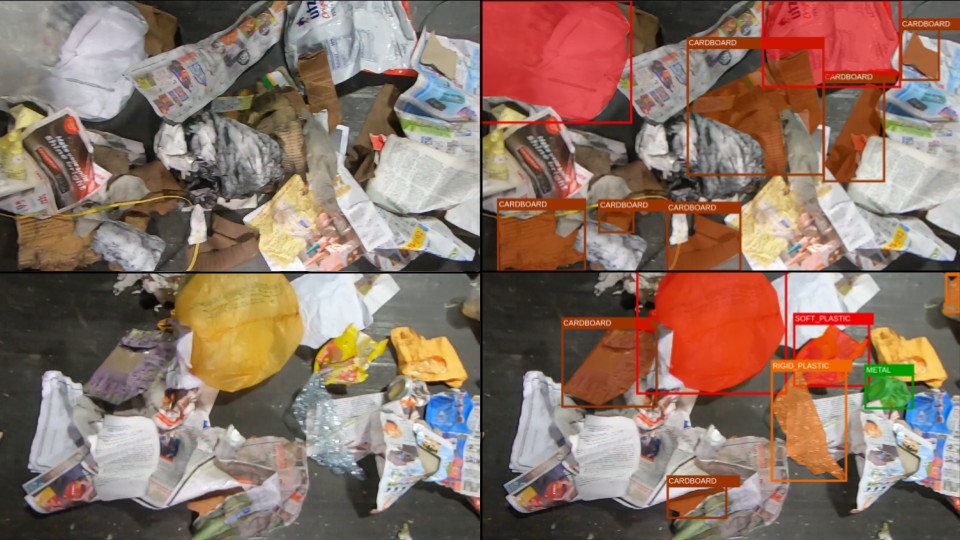ZeroWaste Dataset: Towards Deformable Object Segmentation in Cluttered Scenes
Vitaly Ablavsky, Berk Calli, Sarah Adel Bargal and Kate Saenko
Our paper was accepted to CVPR 2022!
Abstract
Less than 35% of recyclable waste is being actually recycled in the U, which leads to increased soil and sea pollution and is one of the major concerns of environmental researchers as well as the common public. At the heart of the problem are the inefficiencies of the waste sorting process (separating paper, plastic, metal, glass, etc.) due to the extremely complex and cluttered nature of the waste stream. Recyclable waste detection poses a unique computer vision challenge as it requires detection of highly deformable and often translucent objects in cluttered scenes with little to no context information usually present in human-centric datasets. This challenging computer vision task currently lacks suitable datasets or methods in the available literature. In this paper, we take a step towards computer-aided waste detection and present the first in-the-wild industrial-grade waste detection and segmentation dataset, ZeroWaste. We believe that ZeroWaste will catalyze research in object detection and semantic segmentation in extreme clutter as well as applications in the recycling domain.
Dataset
| ZeroWaste-f | ZeroWaste-s | ZeroWaste-w | |
|---|---|---|---|
| Data | zerowaste-f.zip(7.0G) | zerowaste-s.zip(9.9G) | zerowaste-w.zip(3.0G) |
| #Images | 4,503 | 6,212 | 1,410 |
Reference
If you find this useful in your work please consider citing:
@misc{zerowaste,
author = {Dina Bashkirova, Mohamed Abdelfattah, Ziliang Zhu, James Akl, Fadi Alladkani, Ping Hu,
Vitaly Ablavsky, Berk Calli, Sarah Adel Bargal and Kate Saenko},
title = {ZeroWaste dataset: Towards Deformable Object Segmentation in Cluttered Scenes},
howpublished = {Proceedings of the IEEE/CVF Conference on Computer Vision and Pattern Recognition},
year = {2021}
}
License
This dataset is distributed under the Creative Commons Attribution-NonCommercial 4.0 International License.
Click here for the detailed information about the license.

